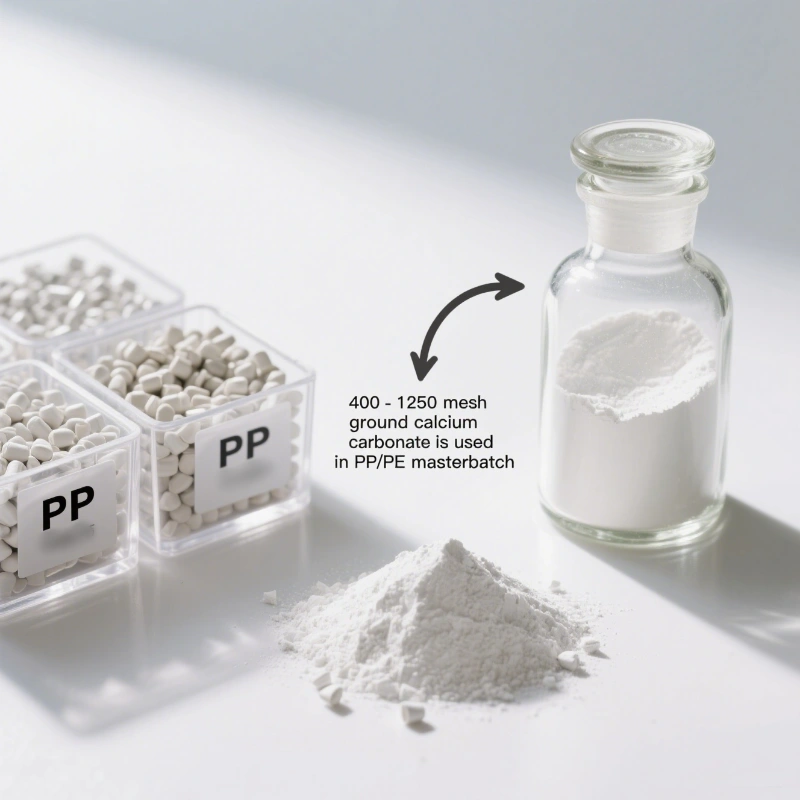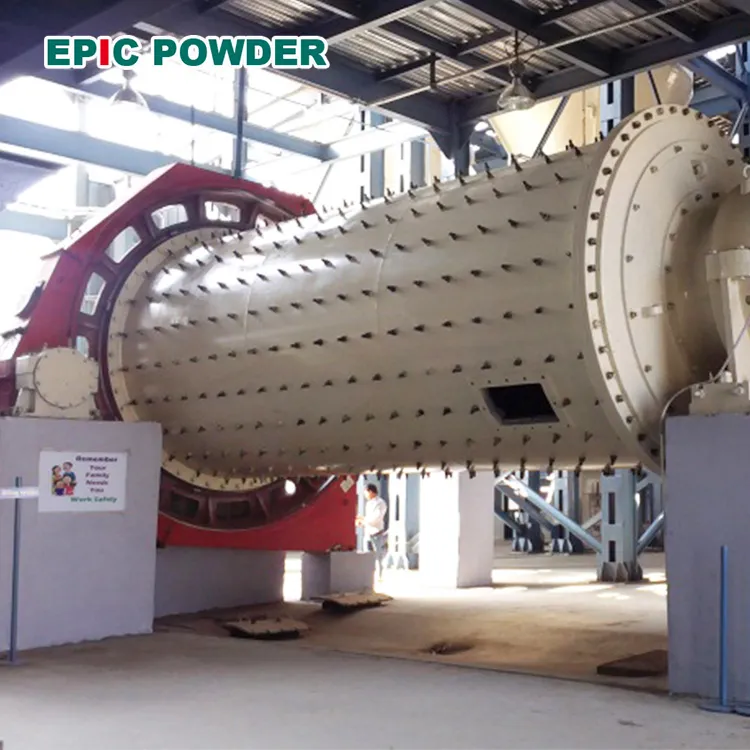Calcium carbonate is widely used in filling polyvinyl chloride (PVC), polyethylene (PE), polypropylene (PP), acrylonitrile butadiene-styrene copolymer (ABS) and other resins. Adding calcium carbonate has a certain effect on improving certain properties of plastic products to expand their application range. In plastic processing, adding calcium carbonate to masterbatch can reduce resin shrinkage, improve rheology, control viscosity, and also play the following roles:

Improve the Dimensional Stability of Plastic Products
Adding calcium carbonate to masterbatch plays a role as a skeleton in plastic products and has a great effect on the dimensional stability of plastic products.
Improve the Hardness and Rigidity of Plastic Products
In plastics, especially soft polyvinyl chloride, the hardness increases with the amount of calcium carbonate added. The elongation decreases with the increase of hardness. Calcium carbonate with fine particles and high oil absorption value has a large hardness growth rate. On the contrary, calcium carbonate with coarse particles and low oil absorption value has a small hardness growth rate of plastic. In soft polyvinyl chloride, the hardness growth rate of heavy calcium carbonate is the smallest, followed by precipitated calcium carbonate (lightweight).
Calcium carbonate generally cannot play a reinforcing role in plastics (resins). Calcium carbonate particles can often be infiltrated by resin. Therefore, the normal effect of adding calcium carbonate is to increase the rigidity of the resin, and the elastic modulus and hardness also increase. As the amount added increases, the tensile strength and extreme elongation both decrease.
Different calcium carbonates have different hardnesses when added in different amounts.
Improve Plastic Processing Performance
The addition of calcium carbonate can change the rheological properties of plastics. Calcium carbonate powder is often added in large quantities, which helps it mix with other components. It also helps the processing and forming of plastics.
The addition of calcium carbonate, especially surface-treated calcium carbonate, can not only improve the hardness of the product. It can also improve the surface gloss and surface smoothness of the product.
The addition of calcium carbonate can reduce the shrinkage, linear expansion coefficient, and creep properties of plastic products. It creates conditions for processing and forming.
Improve the Heat Resistance of Plastic Products
Adding calcium carbonate to general plastic products can improve the heat resistance. For example, in polypropylene, adding about 40% calcium carbonate can increase the heat resistance by about 200°C. When the filling ratio is ≤20%, the heat resistance temperature increases by 8 to 130°C.
Improve the Light Diffusion of Plastics
Among plastic products, some products require whitening but not transparency, while others want to be matte. The addition of calcium carbonate can play a certain role in this regard.
Calcium carbonate with a whiteness of more than 90 has a significant whitening effect in plastic products. Combined with titanium dioxide and lead powder, the matte property of plastic products is greatly improved.
In calcium plastic paper, low-density polyethylene (LDPE) and high-density polyethylene (HDPE) films, adding calcium carbonate can achieve the effects of light diffusion and matte. This makes it suitable for writing and printing.
Calcium carbonate with better whiteness can also replace expensive white pigments.
It Can Make the Products Have Certain Special Properties
It can make the products have certain special properties
Calcium carbonate has a certain insulating effect when added to cable materials. The addition of fine or ultrafine calcium carbonate to polyvinyl chloride (PVC) provides a certain effect of flame retardancy.
Reduce the Cost of Plastic Products
The prices of ordinary light calcium carbonate and heavy calcium carbonate are much lower than those of plastics. The addition of calcium carbonate will reduce the cost of plastic products. Therefore, calcium carbonate is also called filler or extender.
At this stage, the main goal of adding calcium carbonate is to reduce the cost of plastics. With the improvement of the surface properties of calcium carbonate and the controllable shape and particle size. Calcium carbonate will gradually become a functional filler for the purpose of reinforcement or functionality.
Calcium carbonate is the most commonly used filler in the production and processing of PVC products. Its purpose is mostly to increase the volume of PVC products to achieve the purpose of reducing production costs.
Epic Powder

Epic Powder, 20+ years of work experience in the ultrafine powder industry. Actively promote the future development of ultra-fine powder, focusing on crushing, grinding, classifying and modification process of ultra-fine powder. Contact us for a free consultation and customized solutions! Our expert team is dedicated to providing high-quality products and services to maximize the value of your powder processing. Epic Powder—Your Trusted Powder Processing Expert !